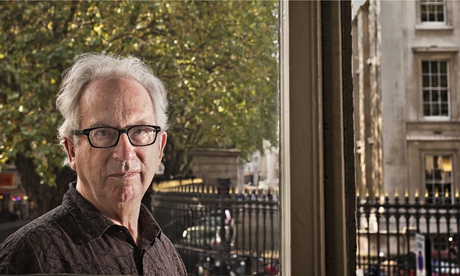
Peter Carey’s new novel tells the story of Felix Moore, a leftwing Australian journalist at work on a biography of a wanted hacker whose virus has infected a corporation responsible for securing prisons in the United States. Felix’s commission comes with exclusive access to his subject, Gaby Baillieux, but working conditions are less than ideal; at one point he’s beaten up and taken to a secret location in the boot of a car. Bankrolled by a shady tycoon who knows that Felix once hung out in the same radical circles as Gaby’s actress mother, the job represents a lifeline for a man who has just lost a defamation suit – and whose specialist subject is the history of ill will between Australia and America.
That overlooked history is what Amnesia’s title nods to; although the novel might not have taken this form had WikiLeaks and Anonymous not come to prominence, you feel its themes have long preoccupied Carey. Recent interviews with him offer an idiosyncratic take on why WikiLeaks founder Julian Assange exposed the civilian cost of America’s invasion of Iraq: Carey’s emphasis on Assange’s Australian nationality places WikiLeaks in a tit-for-tat geopolitical narrative that dates back to 1975 and the CIA’s suspected role in unseating Australia’s Labour prime minister Gough Whitlam as payback for his withdrawal from Vietnam.
Viewed in that light, Amnesia’s interest in hacktivism is more symbolic than anything, and the novel doesn’t aim to compete with the abundance of thriller-like journalism on the topic. Little is said about the mechanics of the cyber attack for which Gaby risks extradition; what material there is about computers mostly concerns how she got into hacking in the 1980s after hanging out with a boy who plays the text-based adventure game Zork.
Carey’s main concern is for what Australia looked like during the second world war and after: we read in particular about the hardships of Gaby’s grandmother in 1940s Brisbane, when local women were prey to the Australian and American soldiers who fought each other in the streets.
What makes the novel so unwieldy is our uncertainty about the status of what we’re reading. It’s filtered through Felix’s consciousness, but not straightforwardly: we toggle between Felix’s transcription of Gaby’s audio-tape memories and his first-person speculative recreation of what she and her mother and grandmother thought and felt during various episodes in their lives. Some of the jerkiness seems designed to be true to the nature of Felix’s shiraz-fuelled composition under virtual house arrest, but why does Carey refer to him interchangeably as “the fugitive”, “the hermit”, “the writer”, as well as Felix, sometimes in the space of a paragraph or two? Gaby, as transcribed by Felix, says “freakerated” and “disgustitude” but talks too about “the contrails of my thoughts”, which sounds more like Felix, who describes his body as a “human envelope”.
With sub-threads about ecology, in-fighting among the Australian left, and race (Gaby’s Samoan classmate winds up as the fall guy for one of her early hacks), the splintered focus can give the impression that there are several novels fighting to get out of Amnesia. Felix’s encounter with Gaby gives rise to a reflection on how the targets of activism have shifted over time: where he goes after governments, she “easily saw that the enemy was not one nation state but a cloud of companies, corporations, contractors, statutory bodies whose survival meant the degradation of water, air, soil, life itself”. The problem is that Carey ends up having to spell all of this out: maybe the form he needs right now is the essay.
Amnesia is published by Faber (£18.99). Click here to buy it for £15.19

